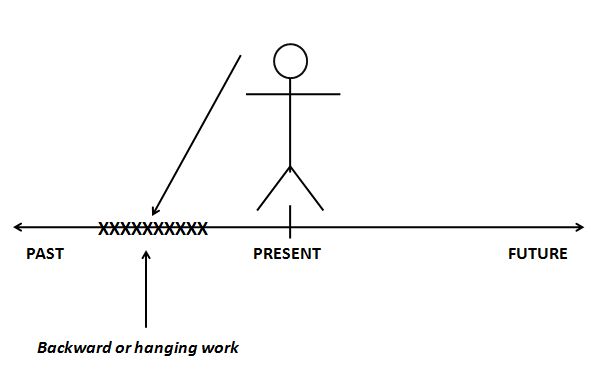ALWAYS KEEP IN THE
PRESENT
The MBR establishes that true
or real time, not only for computers but also for people, means NOW.
Therefore, the only thing you should be interested in is NOW, the
present. You should focus on what you have to do today, not yesterday,
nor tomorrow.
Take
advantage of every moment of the day. To achieve this, the MBR proposes
the following guides:
Accept the responsability of your
decisions. Every moment, no matter
what you are doing, you have chosen to do it. Nobody has obliged you to
do it. If you chose unwisely you have the possibility to change. If you
chose well, you have to do the best you can.
Consider
every decision positively . You have
decided to use an hour to do something; use this hour wisely. Don't
waste your energy on doubts or worries about other things that you are
not doing at the moment or what you are considering doing in the
future.
If
something continuously disturbs you, confront it.
Sometimes a problem becomes obsessive and takes up a
lot of time and energy which could be used on other activities. Even
though it is not very important with respect to your goals, problems
like planning a meeting, writing a complex letter, or an unfulfilled
commitment should be confronted to free our mind. The most constructive
act, of course, is to resolve the problem and forget about it if
possible. However, if you can not
see to the problem, find a date in the future when you can. Knowing
that you have already decided to deal with it in another moment, will
avoid this problem effecting your attention.
Everyday,
periodically, consciously identify the moment that you are living.
Just for a fraction of a second, perhaps five or six times a day, stop
and look around you. Be aware of where you are and what you are doing.
This simple exercise will help you to remain centred, balanced and
focused with your own life. People
that periodically stop to think about the moment they are living, find
that their concentration improves and they can concentrate on the
present taks and they are also more efficient.
What we have just explained,
K. Gleeson represents in the following way:

Figure 1.1
Taken from Kerry Gleeson. With pending work a person concentrates on the past, not on the future.
The previous figure
represents what happens when we have pending tasks, work that we
haven't carried out, they take our attention away and they don't allow
us to focus on the present but to glimpse at the future.
Kerry Glesson proposes the following example: suppose you are
participating in a race that starts in the Present and the goal is the
Future. If, instead of starting in the Present you started in the Past,
you have a long way to go before you get to the starting line.
Threfore, when we have activities to resolve, we should always bear
them in mind and not allow them to avance in the race towards our goal:
the future.

